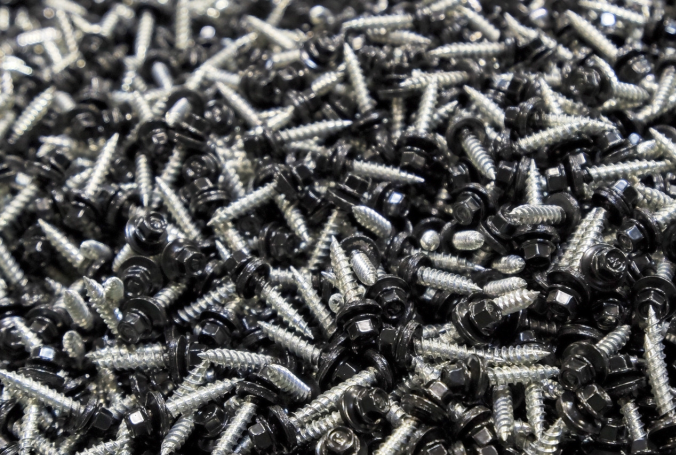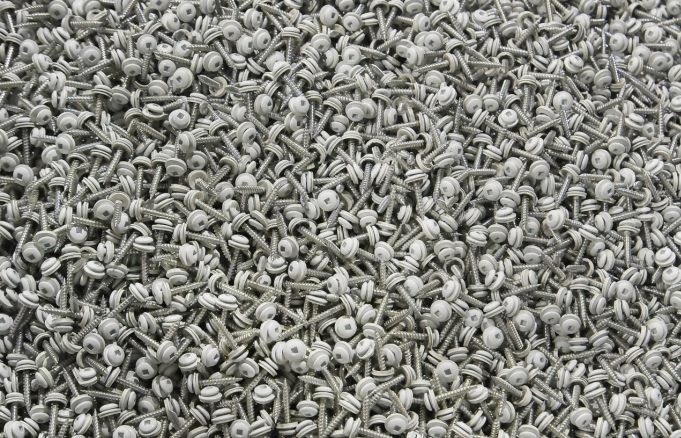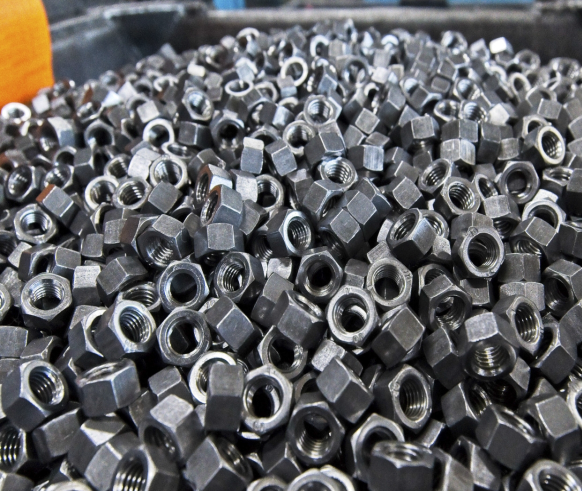Here’s the Story of the Canadian Fastener Manufacturer Behind One of the WTO’s Biggest Price Dumping Cases
Share:
Welcome to Thomas Insights — every day, we publish the latest news and analysis to keep our readers up to date on what’s happening in industry. Sign up here to get the day’s top stories delivered straight to your inbox.

This article was sponsored by Leland Industries Inc., a North American manufacturer of fasteners for OEMs and manufacturers in the grain storage, construction, garage door, metal building, and other industries.
Over 20 years ago, a Canadian fastener manufacturer launched a trade case that became one of the World Trade Organization’s (WTO) largest trade issues.
In 2000, Leland Industries alleged that carbon steel screws imported from China and Taiwan were being price dumped in Canada, which hurt domestic carbon steel screw manufacturers like Leland. Price dumping is the practice of selling a product in a market at a price below the home-manufacturer’s cost to produce it. Fighting this case represents one of many ways Leland Industries has advocated for North American manufacturing.
“We’re not against imports as long as it’s fair,” says Byron Nelson, president and founder of Leland Industries Inc. “Price dumping doesn’t just affect those of us in the domestic fastener industry but also the businesses throughout the supply chain, like heat treaters, service stations for trucking, steel mills, and platers.”
Today, Leland Industries is one of few nut manufacturers left in North America. Their endurance in the fastener industry is due to a combination of factors: industry-standard products, recent reshoring trends, and a firm commitment to keeping their material sourcing and manufacturing operations domestic.
Get to Know Leland Industries
- Founded in 1984, Leland Industries is one of the largest Canadian manufacturers of fasteners, such as screws, nuts, bolts, washers, rivets, and custom products. The company has always used 100% North American steel and labor to manufacture all products.
- Leland Industries is a family-owned and operated business, led by Byron Nelson and his sons Duane and Jason.
- Leland Industries has ISO/IEC 17025:2017 accreditation from A2LA, and international agreements of accreditation with the Americas, Europe, and Pacific Rim countries.
Thomas Insights (TI): Tell us about Leland Industries. What sets you apart from other domestic fastener manufacturers?
Byron Nelson (BN): We fully manufacture, assemble, and paint all our products domestically, including screws, nuts, and bolts from #6 diameter up to ⅞ inch diameter. A lot of our business is not the standard high-volume fasteners but the peripheral and semi-standard or custom fasteners. We have about 240 employees, two manufacturing locations (205,000 and 50,000 square feet), and eight warehouses in Canada and the U.S.A.
We do not import any materials. We’re one of the only companies left in North America manufacturing nuts. Keeping our manufacturing and labor domestic is our competitive advantage. Oftentimes, other domestic manufacturers supplement their product offerings with imported goods. For example, a company that provides standard nuts and bolts may manufacture the bolts themselves but supply imported nuts to go with them. When this happens, there’s a difference in quality, and naturally, a substantial cost benefit.
TI: How has reshoring affected your manufacturing business?
BN: Lately, some of the biggest trends we’ve seen are the push to buy domestic and to improve quality. A lot of our business has been coming from North American companies that are reshoring. They’ve been burned by inferior quality import goods, raw material shortages, high shipping container prices, extended lead times, and other recent supply chain issues. Our order volumes have increased substantially over the years.
Today, we have some industries where we’re basically sole-sourced by that industry. We work with customers who want domestic goods and all the quality assurance certifications that come with them. They know that if they call us, they’re going to get a high-quality domestic-made product from our plant, avoiding all of the issues with importing and outsourcing.
TI: How has importing impacted the fastener industry over the years?
BN: When the import business started growing in North America, it eroded the prices. Over the years we’ve lost hundreds of thousands of jobs in our industry in Canada and the U.S. We lost 93% of the domestic light fastener (screw) market to import goods. A lot of small and large manufacturers went out of business because of the import business’ price dumping.
If we quote a price for screws, it’s common for customers to say their import price is less than half or a third of our quote. The importers are fighting to the bottom, competing against each other with prices below fair value — in fact, less than the cost of raw material.
In 2000, Leland Industries launched a trade case against importing groups based in China and Taiwan. It ended up being one of the largest trade issues on the WTO because of the size of the commodity. By proving that they were dumping prices in Canada well below their cost of steel, we won the case and got a 170% tariff against China and Taiwan plus a 35% subsidy against China.
After this, the importers tried to get around it. They would mark goods as made in other overseas countries and ship them to Canada, the U.S., and Europe. Even after being sent back, they would come back with a new label marked “Manufactured in a country not affected by tariffs.”
We’re not against imports as long as it’s fair. But when it’s unfair — for example, when the Chinese government unfairly subsidizes their manufacturers and when their cost of steel is 25% higher than the finished product — that’s when it hurts not only the fastener business but our domestic economy at large. And it’s not just importing groups. It’s also North American companies that take a sample or drawing overseas to get it made. None of this contributes to a strong domestic manufacturing industry.
TI: Can you share a specific case study that illustrates the advantages of working with domestic manufacturers like Leland Industries?
BN: One of our clients is a Swiss start-up that had several plants in Toronto. When they first approached us a few years ago, we developed a screw for a special pallet they were producing. The volumes were a few million pieces. Then they decided to shift their manufacturing plants to Mexico and started to import the screws. We didn’t hear from them for years, but we were still holding some of their inventory.
When this client reached out to us again recently, we found out that they had become frustrated with waiting for imported goods that ended up not working. The imported screws were assembled at high speeds, and the client couldn’t get the driver bits to stay in the screws because the tolerances were so inconsistent. This past February they took all their past inventory off our hands, and they’re now looking to place a large blanket order with us.
TI: How does buying domestic benefit not only your business and industry but also the domestic economy?
BN: When imported fasteners first started coming in, they were bare metal, which domestic heat treaters and platers would treat before sending them to customers. But when plated goods began coming in, the heat treaters and platers lost market share. When the fasteners started coming in fully packaged, domestic fastener producers lost even more market share. Then imports took over the goods that fasteners fasten, like industrial equipment and refrigerators.
The consequences of purchasing imported fasteners — specifically those priced far lower than fair value — over domestically-made ones have a ripple effect throughout the domestic economy. If more people buy imported fasteners instead of domestic fasteners, there will be fewer workers at domestic steel mills, fewer service station attendants, and fewer forklift drivers to transport products.
By buying fasteners from Leland Industries and other domestic manufacturers, customers are supporting not only the domestic fastener market but also the greater Canadian and American economies.

TI: Tell us about Leland’s industry-standard agricultural storage fasteners. How has your company grown market share in this industry and other major markets?
BN: Leland Industries started in the agricultural storage industry, and we worked very closely with this market to develop specific types of nuts and bolts. For example, because of the high volume of nuts and bolts to be hand-assembled at each facility, they had to be quick and convenient for the installer to put together. However, many imported products have corrosion problems, and even if they are within spec, once plated, their tolerances and fit were off.
Our ag storage nuts and bolts guarantee a spin fit at all times, for quick, easy, and long-lasting fastening. These products have become the industry standard for ag storage containers, which has allowed us to command about 90% of the market.
In addition to ag storage, we’ve expanded to serve the OEM, overhead garage door, steel building, agricultural steel building, and other major industries.
Get your North American fasteners from Leland Industries.








